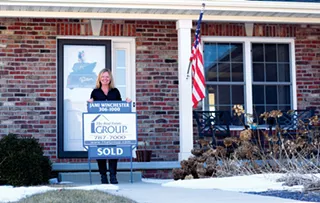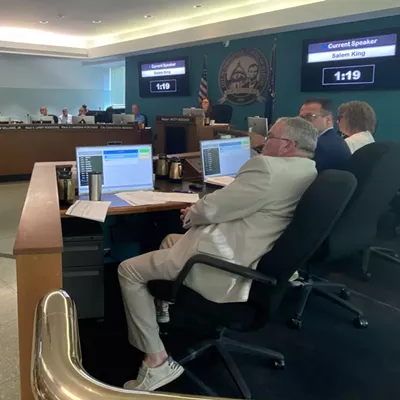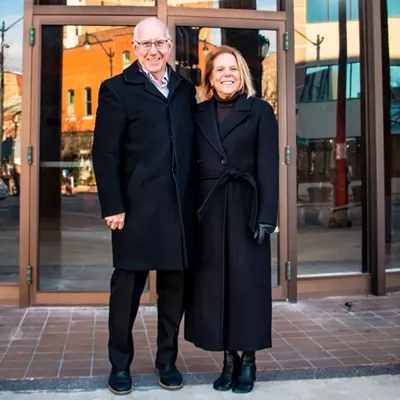Hot housing market upends traditional advice
By Carey Smith“I would love to sell your home, but I have to ask, do you have a place to go? Because I will make you homeless.” That is the first conversation Randy Aldrich, a broker associate with The Real Estate Group, has with potential sellers.
The hot real estate market was formerly the norm only in metro areas, but with dwindling housing supply, it has now reached all parts of the country. As of this writing, only 144 homes are for sale in Sangamon County. The Springfield-area housing inventory has dropped from three to six months’ worth of homes prior to the pandemic to the current one to two weeks. As such, REALTORS® are adjusting their advice for both buyers and sellers.
It is definitely a seller’s market. Jami Winchester, a broker associate with The Real Estate Group, explains that when a seller puts their home on the market, they may have “12-15 showings in a day,” followed by several offers. “Before, if we had an offer, we saw it right off the bat and made a decision.” Now, a seller may elect to collect offers for 48 hours before making a decision.
“More than likely,” says Winchester, “if you have a house that is priced right and in decent condition it’s going to sell super-fast – less than a month average on market.”
Jim Skeeters, a broker with Keller Williams Capital, agrees on the need to prepare sellers for a quick sale, noting there is a shortage of rentals locally as well. “This is a very serious problem that some people don’t have a place to go when they sell their home.”
Deciding among many offers may sound like a good problem to have, but as Aldrich notes, “If you’re a seller, you have to discern between a real offer and a lot of wishful thinking.”
REALTORS® recommend that buyers get pre-approved before ever starting a home search. This doesn’t mean simply using an internet algorithm to determine how much home can be purchased with a certain debt-to-income ratio, but completing the formal pre-approval process with a lender.
“Be pre-approved, that’s absolutely No. 1,” agrees Ron Duff, managing broker at RE/MAX Professionals. Duff also recommends buyers put down “reasonably strong earnest money” to substantiate their offer. “Put down some money and let them know you intend to buy.”
A lack of contingencies is another winning strategy. As Duff explains, “The fewer contingencies you put in your offer, the better the chance it will be accepted.” This also includes home inspections, though not all lenders will approve a mortgage without a home, termite or radon inspection.
Aldrich agrees that while a lack of contingencies may make an offer more desirable in the eyes of a seller, it is important for first-time home buyers to be aware of potential big-ticket repairs before purchasing. He recommends buyers bring someone with them when viewing a home to have “another set of eyes to make a confident choice. It might be that the only way to get an offer accepted is to forgo a home inspection, but that shouldn’t be done unless you can be sure.”
Another universal recommendation is to use a real estate agent. Aldrich states, “ They need to work with an agent who not only can help find what’s out there on the open market, but is also part of a company that has listings in the hopper coming up.” With 200 agents among all of The Real Estate Group’s offices, Aldrich notes while a seller is getting their house ready, “I can’t disseminate their information publicly, but I can disseminate it through my office,” making other agents aware of a home before it officially enters the market. This greatly increases the available inventory within a real estate company.
An agent can also recommend a lender, depending on what kind of loans buyers need to access. Aldrich stresses every type of loan is available locally. Closing costs tend to be substantially lower when using a local lender rather than an internet service, with the added benefit that “local investors are going to take that money and reinvest it in the community,” he noted. Escalation clauses, an addendum included with an offer stating the buyer is willing to increase their offer incrementally to beat other verifiable offers, up to a capped limit, have become commonplace. Winchester states, “We’re seeing an escalation clause with almost every offer.”
For example, a buyer may make an offer for $125,000 with an escalation clause stating they will pay an additional $1,000 above any other legitimate offer with a cap of $145,000. Aldrich states this strategy “keeps the buyer from competing against themselves, keeps them from paying thousands more than they needed to get the deal, but you’ll never know if they just throw out a higher number.”
Whether anticipated interest rate increases will dampen the local hot real estate market remains to be seen, but for now, both home buyers and sellers would be wise to take current market factors into account.
Carey Smith is thankful to own a home in the Enos Park neighborhood.















